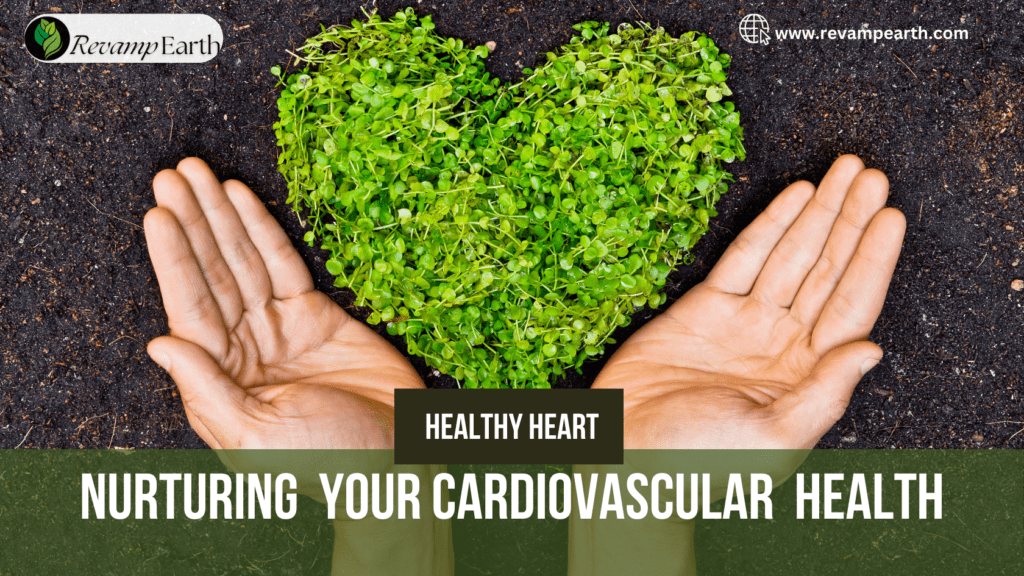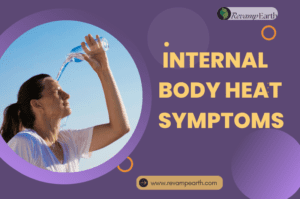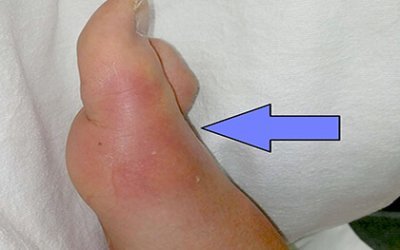The Best Herbs For Maintaining A Healthy Heart

Welcome to our Heart Health Guide! Did you know that cardiovascular diseases affect millions worldwide? In this blog, we simplify the complexities. Learn to recognize key symptoms, explore the power of herbal remedies backed by science, and discover easy precautions and a better healthy lifestyle for a stronger heart. Join us for a straightforward journey to better heart health – because your heart deserves the best care.
Possible Causes:
Unhealthy Eating: Consuming too much unhealthy food high in fats, salt, and sugars.
Lack of Exercise: Not being physically active increases the risk.
Smoking: Tobacco damages the heart and blood vessels.
Obesity: Being overweight stresses the heart.
High Blood Pressure: Strains the heart and arteries.
Diabetes: Increases the risk of heart problems.
Family History: Genetics and family background matter.
Age and Gender: Getting older and being male can increase risk.
Alcohol Abuse: Excessive drinking harms the heart.
Stress: Long-term stress may contribute.
Living a healthy lifestyle with good eating habits, regular exercise, no smoking, and moderate alcohol can help prevent heart disease. Regular check-ups are important too.
Understand Symptoms:
Heart disease symptoms can vary depending on the specific condition. However, common symptoms of heart disease or cardiovascular problems include:
Chest Pain or Discomfort (Angina): A feeling of pressure, fullness, squeezing, or pain in the chest. This discomfort may also extend to the arms, neck, jaw, shoulder, or back.
Shortness of Breath: Difficulty breathing or shortness of breath, especially during physical activities or when lying down.
Fatigue: Unexplained fatigue or weakness, often accompanied by a feeling of tiredness even with minimal exertion.
Rapid or Irregular Heartbeat (Arrhythmia): Palpitations, fluttering, or a quivering sensation in the chest due to irregular heartbeats.
Dizziness or Fainting: Feeling lightheaded, dizzy, or fainting can be a sign of inadequate blood flow to the brain.
Swelling (Edema): Fluid retention leads to swelling, particularly in the legs, ankles, and feet.
Nausea or Indigestion: Some people may experience nausea, indigestion, or abdominal discomfort as a symptom of heart disease.
Sweating: Excessive sweating, especially without any apparent cause.
It’s important to note that not everyone with heart disease experiences the same symptoms, and some individuals may not show any noticeable signs. Additionally, certain heart conditions, like heart attacks, can cause sudden and severe symptoms, while others may develop gradually.
If you suspect you may have heart-related symptoms or are at risk for heart disease, it is crucial to seek medical attention promptly. Only a healthcare professional can provide an accurate diagnosis and appropriate treatment.
Management Strategies:
The management of cardiovascular diseases (CVD) involves a comprehensive approach that includes prevention, early detection, treatment, and ongoing care. Here is a strategic framework for managing cardiovascular diseases:
Prevention and Risk Assessment:
Lifestyle Modification: Encourage healthy behaviors such as regular exercise, a balanced diet, weight management, and smoking cessation.
Screening and Early Detection: Identify individuals at risk through regular health check-ups, blood pressure monitoring, cholesterol screening, and diabetes management.
Education and Awareness:
Patient Education: Promote awareness about cardiovascular health, risk factors, and the importance of adherence to prescribed medications and lifestyle changes.
Community Outreach: Conduct educational programs and campaigns to raise awareness about CVD prevention and management.
Integrated Healthcare Team:
Multidisciplinary Approach: Establish a collaborative team involving cardiologists, primary care physicians, dietitians, physical therapists, and mental health professionals to address the various aspects of CVD care.
Patient-Centered Care: Focus on individualized care plans, taking into consideration the patient’s preferences, cultural background, and social determinants of health.
Technology Integration:
Telemedicine: Utilize telehealth services for remote monitoring, follow-up appointments, and patient education.
Health Information Systems: Implement electronic health records to facilitate seamless communication among healthcare providers and ensure continuity of care.
Pharmacological Intervention:
Medication Adherence Programs: Implement strategies to improve patient adherence to prescribed medications, including educational programs, reminders, and regular follow-ups.
Individualized Treatment Plans: Tailor medication regimens based on the patient’s specific risk factors, comorbidities, and preferences.
Rehabilitation and Lifestyle Programs:
Cardiac Rehabilitation: Offer structured programs that include exercise training, dietary counseling, and emotional support for patients recovering from cardiovascular events.
Behavioral Interventions: Incorporate behavioral change techniques to help individuals adopt and maintain healthy lifestyle habits.
Continuous Monitoring and Evaluation:
Risk Factor Monitoring: Regularly assess and monitor blood pressure, cholesterol levels, and other relevant risk factors.
Quality Improvement Initiatives: Implement quality improvement programs to enhance the effectiveness of cardiovascular care and outcomes.
Research and Innovation:
Clinical Trials: Encourage participation in clinical trials to advance knowledge and treatment options in cardiovascular medicine.
Incorporate Emerging Technologies: Stay updated on technological advancements and incorporate them into clinical practice when evidence supports their efficacy.
Policy Advocacy:
Advocate for Public Policies: Support policies that promote cardiovascular health, such as regulations on tobacco, healthy food initiatives, and improved urban planning to encourage physical activity.
Global Collaboration:
International Cooperation: Collaborate with global health organizations and institutions to share best practices, research findings, and resources for improving cardiovascular care worldwide.
Implementing this comprehensive strategy requires collaboration among healthcare providers, policymakers, researchers, and the community. Regular assessment and adaptation of the strategy based on emerging evidence and healthcare trends are essential for continued improvement in cardiovascular disease management.

Exploring Herbal Remedies for cardiovascular diseases:
While it’s important to note that herbal remedies should not replace professional medical advice or prescribed medications, some herbs have been traditionally used to support cardiovascular health. Always consult with a healthcare provider before incorporating herbs into your routine, especially if you have existing medical conditions or are taking medications. Here are a few herbs that have been studied for their potential cardiovascular benefits with their dosage:
1) Garlic:
Garlic helps to break up cholesterol in the blood vessels, thereby preventing any hardening of arteries which leads to high blood pressure and heart attack. Know more about Garlic Remedies.
If a patient takes garlic after a heart attack, the cholesterol level comes down. Though the earlier damage may not be repaired, the chances of new attacks are reduced.
2) Onion:
Research shows onion is an effective preventive edible against heart attack. Dr. N. Radhakrishnan, Principal of the Trivandrum Medical College, and Dr. K. Madhavan Kutty of Trivandrum Medical College have established, after seven years of research, that to get rid of the disorders due to coronary disease or blood pressure, one should take 100 grams of onion per day. It assists the functioning of the heart by correcting thrombosis besides reducing blood cholesterol. Know more about Onion Remedies.
3) Sacred Fig Tree (Peepal):
The leaves of peepal trees are used in the treatment of heart diseases. They are crushed and infused in water at night, distilled the next morning, and then stored in bottles. About 15 mg of this infusion is administered thrice daily. It is highly effective in relieving palpitations of the heart and cardiac weakness.
4) Ashwagandha (Indian Winter Cherry):
Mix 1/2 teaspoon root milk powder in 1 teaspoon honey or 1 cup milk and drink in case of Giddiness and palpitation of the heart.
5) Carrot:
In ancient Indian tradition, people used to bury some carrots in hot ashes or charcoal. When they become tender, slice them and place them in the open overnight in a ceramic dish to catch the dew. In the morning, they sprinkle some sugar and rose water over them, and eat for a few days to get rid of palpitation of the heart. Know more about Carrot Remedies.
References
Edgardo Olvera Lopez; Brian D. Ballard; Arif Jan. (2023). Cardiovascular Disease. StatPearls. View
Paniz Vafaei, Chi-Mei Liu, Hank Davis, Priyal Patel, Uma Vadlakonda & Seema Pursnani. (2023). Heart health for South Asians. BMC Public Health. View
- H.K.Bakhru (1992) Herbs That Heal: Natural Remedies for Good Health. Orient Paperbacks. Delhi, India.
- T.V.Sairam (1999) Home Remedies Vol-II: A Handbook of Herbal Cures for Common Ailments. Penguin Books India.
Dos
Eat a Heart-Healthy Diet: Focus on a diet rich in fruits, vegetables, whole grains, lean proteins, and healthy fats. Limit your intake of saturated and trans fats, salt, and added sugars.
Exercise Regularly: Aim for at least 150 minutes of moderate-intensity aerobic exercise or 75 minutes of vigorous-intensity exercise per week. Include strength training exercises twice a week.
Manage Stress: Practice relaxation techniques such as meditation, yoga, or deep breathing exercises to help manage stress and promote heart health.
Maintain a Healthy Weight: Achieving and maintaining a healthy weight can help reduce the risk of cardiovascular diseases.
Monitor Blood Pressure and Cholesterol: Regularly check your blood pressure and cholesterol levels, and follow your healthcare provider’s advice on managing them.
Get Enough Sleep: Aim for 7–9 hours of quality sleep per night to support overall health and well-being.
Stay Hydrated: Drink plenty of water throughout the day to maintain proper hydration.
Don’ts
Avoid Smoking and Tobacco Use: Smoking and tobacco use increase the risk of cardiovascular diseases. If you smoke, seek help to quit.
Limit Alcohol Consumption: Excessive alcohol consumption can negatively impact heart health. Stick to moderate drinking guidelines or avoid alcohol altogether.
Don’t Ignore Warning Signs: If you experience symptoms such as chest pain, shortness of breath, or irregular heartbeats, seek medical attention immediately.
Limit Processed Foods: Processed foods are often high in sodium, unhealthy fats, and added sugars. Choose whole, natural foods whenever possible.
Don’t Skip Regular Exercise: Leading a sedentary lifestyle can increase your risk of cardiovascular diseases. Make physical activity a regular part of your routine.
Avoid Excessive Stress: Chronic stress can contribute to heart problems. Find healthy ways to cope with stress, such as exercise or mindfulness practices.
Don’t Overlook Family History: If you have a family history of cardiovascular diseases, discuss it with your healthcare provider and take preventive measures.
Send Us A Message
FAQs
- Common symptoms of heart disease include chest pain (angina), shortness of breath, fatigue, irregular heartbeats (arrhythmia), swelling in the legs, ankles, or feet, and dizziness or lightheadedness. In some cases, there may be no symptoms at all, especially in the early stages.
- The main risk factors for developing heart disease include high blood pressure, high cholesterol, diabetes, smoking, obesity, physical inactivity, poor diet, excessive alcohol consumption, stress, and a family history of heart disease. Age and gender (men are at higher risk) can also play a role.
- A heart attack occurs when the blood flow to a part of the heart is blocked, often due to a blood clot in a coronary artery. This can damage or destroy part of the heart muscle. A stroke, on the other hand, happens when the blood supply to a part of the brain is interrupted, either by a blood clot (ischemic stroke) or bleeding (hemorrhagic stroke), causing brain cells to die.
- You should see a doctor if you experience symptoms such as chest pain, shortness of breath, palpitations, or any other signs of heart problems. It's also important to have regular check-ups if you have risk factors for heart disease, such as high blood pressure or high cholesterol. Don't wait for symptoms to worsen—early intervention is key to preventing serious complications.














